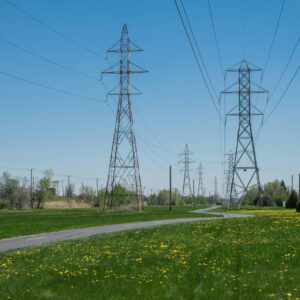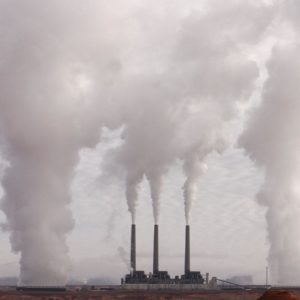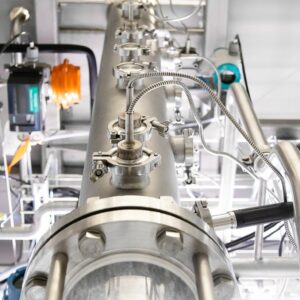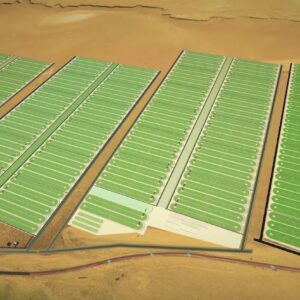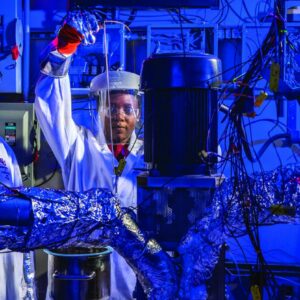Innovative startups like e-Zinc are paving the way for a more affordable and reliable low-carbon energy future.
How Shade-Grown Coffee Can Save Our Mornings
In a warming world, coffee production is especially susceptible to drought. However, reforms in growing practices and crop management like shade-grown coffee can save the crop, improve the environment, and keep the world caffeinated.
The world has (probably) passed peak pollution
"Note that this is not a finger-pointing exercise where rich countries tell poorer ones not to pollute. We’re mostly talking about local air pollution. The negative impacts of pollution are felt by domestic populations. It’s about how we ensure that the poorest countries can gain access to energy, alleviate poverty, and develop while limiting the number of people who die prematurely from air pollution in the process."
A Yeast-Like Bacteria Can Cut Carbon Emissions While Creating Sustainable Aviation Fuel and Sneakers
"LanzaTech’s approach is to take waste carbon emissions from an industrial site and inject them into a bioreactor with the bacteria. From there, the bacteria digest the gas to produce ethanol and a protein coproduct."
Big tech’s great AI power grab
"Google and Microsoft have also teamed up with Nucor, a giant American operator of steel mini-mills, which consume lots of electricity. In March the trio announced that they will aggregate demand and jointly offer contracts to clean-energy projects, both early-stage commercial ones and entirely novel 'first-of-a-kind' ventures. The idea is to guarantee custom for developers of promising technologies like long-duration energy storage, clean hydrogen, next-generation geothermal and nuclear energy."
Food startup Hungryroot uses AI to reduce waste, a major climate offender
"The company can reduce its own waste as well. If it determines that a user has no preference between broccoli and Brussels sprouts, and the company happens to have more broccoli in its warehouse, that’s what they’ll recommend."
This startup just raised funding to turn wood pulp into sustainable, biodegradable plastics
"The startup analyzed its climate impacts and found its product generates 80% less carbon dioxide compared to traditional plastic at commercial scale. The manufacturing process can use existing pulp mill machinery to make rolls of plastic."
Lab Grown Algae Could Play a Pivotal Role in Reducing Global Emissions
Brilliant Planet says that its facilities capture 30 times more carbon per year than an equivalent area of forest, all without encroaching on arable land.
Texas Explores Expanding Advanced Nuclear Power
The state’s exploration of advanced reactor concepts could unleash even more power production in Texas, allowing the Lone Star State to retain its title as the energy capital of the world.
Eliminating Microplastics And Cutting Emissions With Better Boards
"NILO's process innovates legacy wood fiber board manufacturing by replacing a toxic, carcinogenic, and high carbon footprint adhesive called urea formaldehyde (UF). NILO Binder generates fewer carbon dioxide emissions in its production process and emits no off-gasses, making the manufacturing process safer and more environmentally friendly while producing boards that are healthier to have in one’s home."
